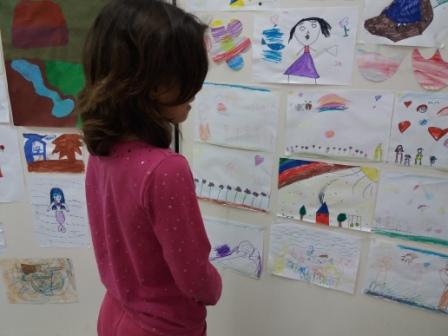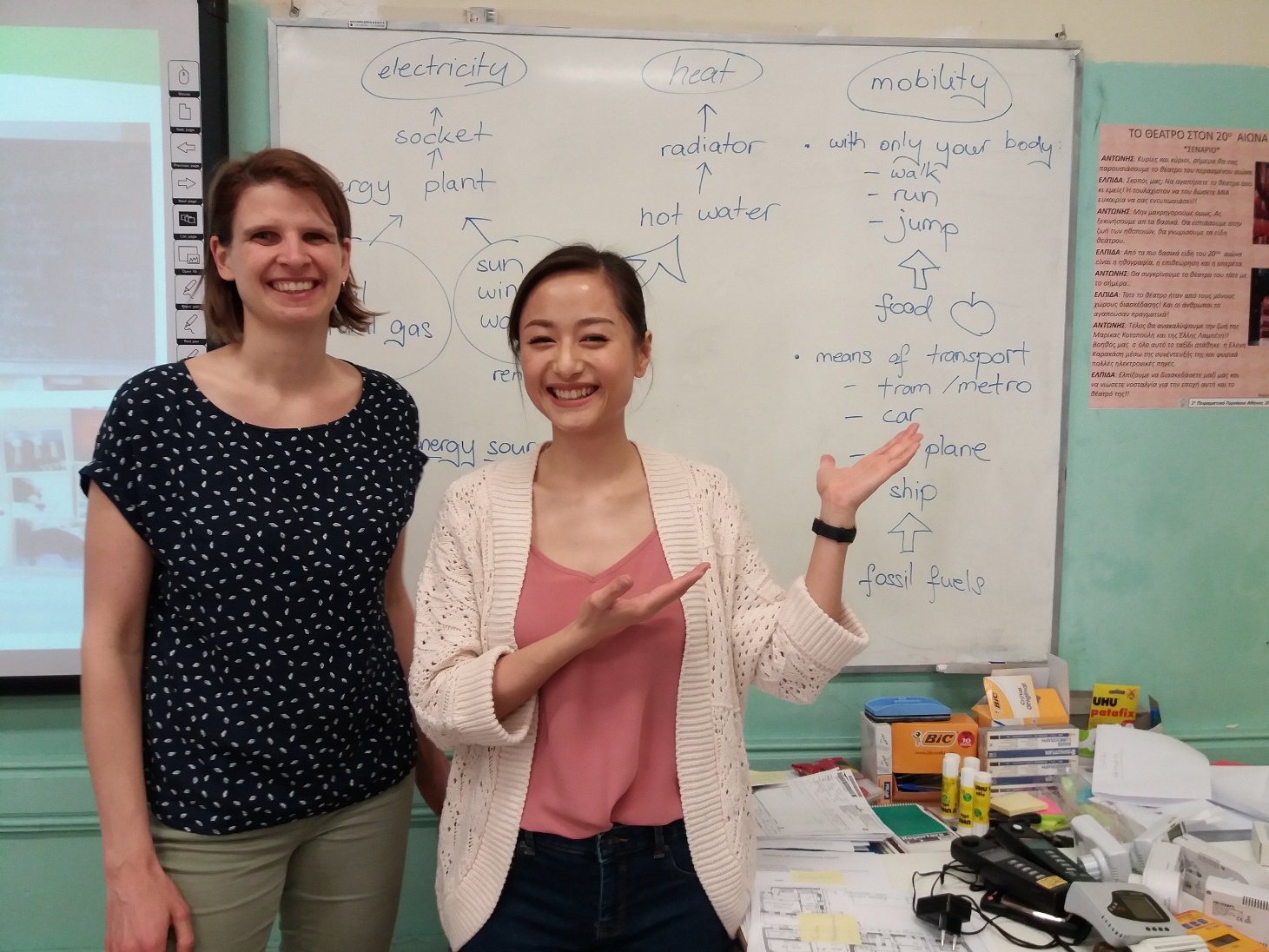
The program “OPEN SOCIETIES AND SCHOOLS IN CLIMATE PROTECTION AND ENERGY TRANSITION (CLIMATE SCHOOL Be.At)” constitutes a collaboration between the Municipality of Athens, the educational community, the Social cooperative “Wind of Renewal”, the citizens initiative “Respect for Greece” (Berlin) and Unabhängiges Institut für Umweltfragen (UfU). It aims to the mobilization of the local communities and municipalities for climate protection and energy transition as well as to the energy efficiency of the schools with the substantial participation and collaboration of the teachers, students, parents and local authorities.
The “Training of the Trainers” is a planned activity of the program and was held in Athens (at the 1st Experimental Secondary School of Athens) from 12th to 15th April 2018. In the training participated 19 teachers (primary and secondary education), environmental education officers and school counselors and the 3 senior experts of “Wind of Renewal”.
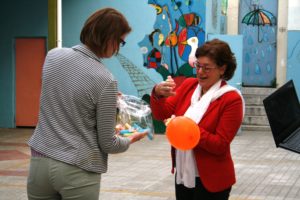
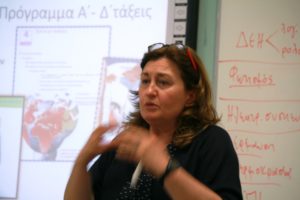
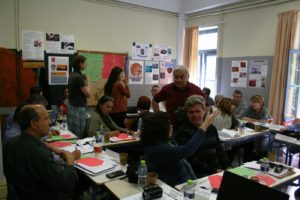
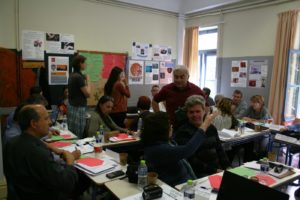
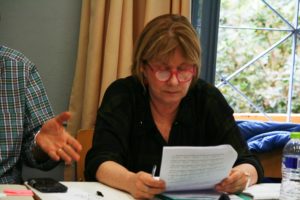
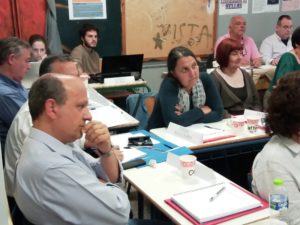
The training opened with greetings from Maria Iliopoulou (Deputy Mayor of the City of Athens for the Child) and Wolfgang Schwarz (RfG). Kostis Kontogiannis (academic coordinator of the program) made a brief presentation of the “Climate Schools Be.At.”. Then followed a presentation of Resilient Cities by Anthi Christou (representative of the Deputy Mayor of Green, Environment, Resilience and Climate Protection of MoA).
The German partner UfU together with a Greek team of experts and educators implemented the 30 hours training. The training consisted of theoretical input and practical workshops as well as an energy tour though the school. The part of the training implemented by UfU was mainly based on the following topics:
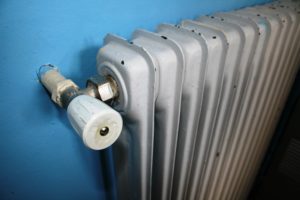
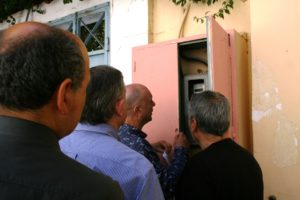
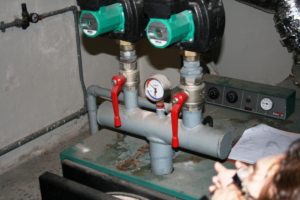
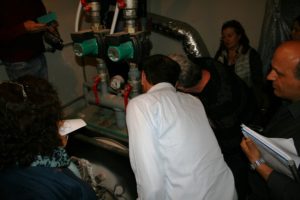

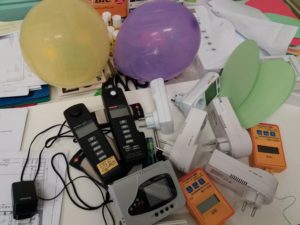
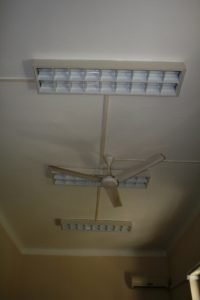
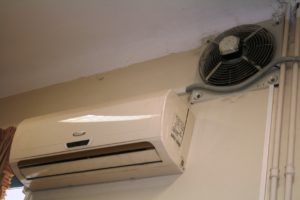
- Presentation of the program fifty/fifty in the schools of Germany
- Theoretical input on fossil fuels, climate change and the energy consumption for an average school and household
- Presentation of the 9 steps to successful energy saving programs in Germany (kick off meeting and formation of energy team, energy tour, teaching students, energy tour with students, measurements, nudge technical energy saving measures, public relations within school, investment suggestions to school authorities, decision about the use of money)
- Educational material (what do the students learn during a fifty/fifty program at their school)
- Examples of achieved savings at schools in Germany, Bulgaria and Romania
- Pedagogical content (methods, activities)
- Introduction on measurements (temperature, illumination, CO2 concentration, electricity consumption)
- Energy saving tips
- Technical input concerning heating, indoor correct airing, lighting and electricity
- Energy tour at the school and report of the collected information
- Examples of small scale investment activities at German schools
- Methods of calculation of the savings
- Overall goals of the implementation of the energy saving program at the schools of Athens
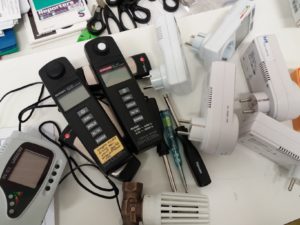
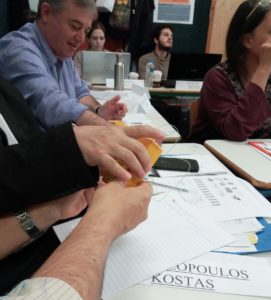
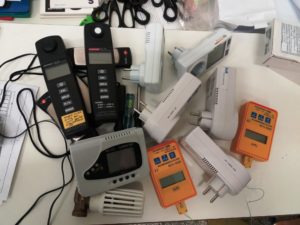
In addition to the training held by UfU, a Greek team of experts presented information about the energy system in Greece (Nikos Chrysogelos, WoR), technical content of the Greek energy system (Kostas Theofylaktos, Energy Consultant) as well as the energy footprint of the Greek schools (Kostis Oungrinis, Technical University of Crete).
On the last day of the workshop (Sunday 15th of April), Kostis Kontogiannis (academic coordinator of the program) made a presentation of the financial system under which operate the Greek schools and there were discussed methods of calculation of the savings.
Afterwards, Maria Dimopoulou and Panagiotis Piliouras (the Greek team responsible to adapt the training material to the local context) presented a 10 steps strategy on how to run the project in the Greek schools, methodological steps of the project as well as research material consisted of evaluation sheets and three questionnaires that are specifically designed for the purposes of the program. The Greek team of adaptation asked the trainees to enrich with their ideas the proposed methodology and the designed questionnaires. As a result, it came out a constructive exchange of ideas among the participants concerning issues of implementation of the project in the Greek schools.
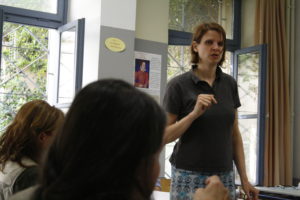
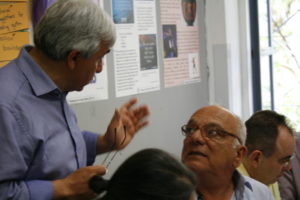
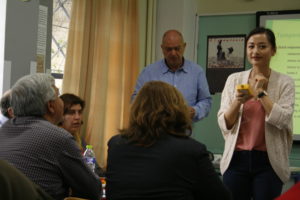
The training included a very interesting and funny interactive game, the “world game” for climate and energy
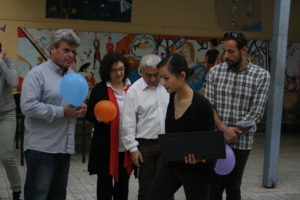

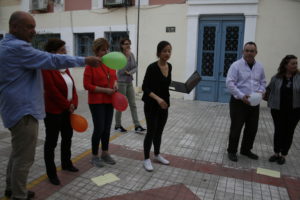
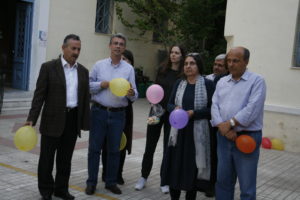
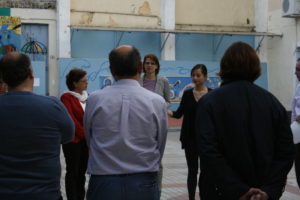
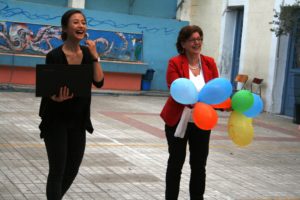
It ended with a presentation of the role of the three facilitators / senior experts from WoR (Maya Andreou, Eva Grigoriadou, Miltos Tsakiris) in the project and a short presentation of the moodle platform by Maria Boubouka (professor of informatics) that will be used throughout the implementation of the program.
The evaluation of the training by the participants was made using three methods (moderation cards in two colors, spider net diagram, evaluation sheets) and the outcome was very good in overall. The majority of the trainees believe that the training has enhanced their knowledge about the topic and that the contents and methods presented in the training will enhance the interest of the pupils for the topic energy saving. What comes out of their evaluation is that in general they feel well prepared through the training for the project in their school.
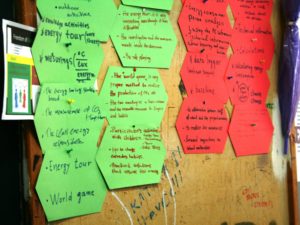
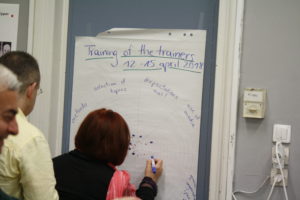
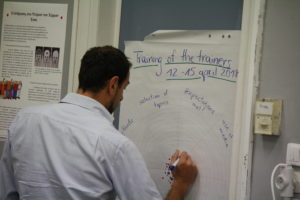
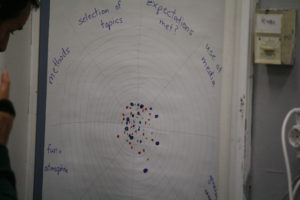
On Monday 15th April a meeting between partners (WoR, UfU) took place. There was made an evaluation of the training and a general discussion of overall goals of the project implementation. In addition there were discussed measures that will enhance the long term motivation of the schools community to stay active on the project (i.e. organize students competitions, change Energy Team every one or two years) and ideas on how to include topics and/or methodologies of the program to the standard curriculum of the students.
